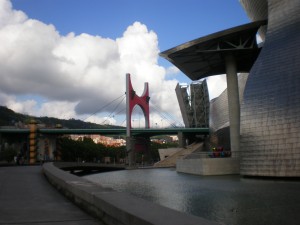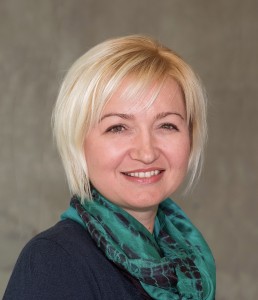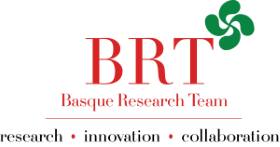Visit Bilbao, Pamplona, San Sebastian, Guernica
March 3-11, 2017
3 Credits

Memory and Conflict: Dealing with the Past Constructively
Instructor: Dr. Borislava Manojlovic
- Discover how different actors and institutions address processes of dealing with the contentious past through education, justice, policymaking and art
- Interact with government officials in the Basque Parliament, civil society leaders, scholars, activists and artists
- Visit cultural sights and meet local people in Bilbao, Pamplona, San Sebastian, Guernica and Vitoria
SPACE LIMITED – APPLY NOW BY DECEMBER 15, 2016
For all inquiries please email Maria Ali at maria.ali44@gmail.com To apply, please send all application materials to Maria Ali in one single PDF file containing:
-
Your resume (maximum one page)
-
A letter of interest explaining why the trip is important to you and your qualifications for participating in an advanced practice course examining sensitive issues (maximum one page)
*** Tour fee of $2,000 includes food, lodging, cultural visits, museums, local transportation and other tour expenses. You will receive a 25% discount on your course tuition. Participants are responsible for their own airfare, which would give them flexibility and better pricing.
PROGRAM DESCRIPTION
This program focuses on learning about a systemic approach in dealing with the contentious past that can contribute to building more equitable and just societies. This program is unique in its scholarly topic and its emphasis on memory, history and conflict. The Basque country will be used as the key case study through which course participants will learn on the ground how the politics of collective remembering impacts the dynamics of relationships among people and how different actors and institutions address processes of dealing with the contentious past. The backdrop of this course will be the society we are traveling to, but the program will explore other case studies and perspectives using a comparative lens to crystallize knowledge applicable in different contexts.
Approaches to dealing with the past have so far mostly focused on top down approaches such as creation of policies and coalitions to combat and prevent occurrence of mass violence. Examples of such approaches are truth and reconciliation commissions, international courts, DDR, compensation and reparations for the victims etc. However, this course will also explore ways in which communities at the grassroots deal with contentious past. We will examine various social practices and initiatives of counteracting the negative effects of divisive past through education, art, commemoration, justice and pedagogy.
The value of this experiential learning program is that it provides an opportunity for its participants to listen and learn from the local people about what is going on the ground, which is a necessary precondition for successful conflict resolution analysis and practice. The program will also provide a space in which each participant will be able to reflect on and re-examine his/her own assumptions on international relations theory and practice, and explore innovative ways of dealing with complex issues. This will be an opportunity to apply various international relations theories and concepts, network with representatives of local and international organizations, engage with people on the ground and immerse in the rich culture of the region.
Program structure: The program will last 9 days (3-11 March 2017) with the trip to the Basque Country, Spain. We will also have one pre-trip and one post-trip seminar/webinar.
Eligibility: The program is open to students, professionals and scholars from Seton Hall and all over the world.
Highlights: During our stay in the Basque country, we will engage in conversations with organizations/ institutions/individuals such as the following:
- The Basque Parliament
- Mondragon Cooperative
- Fernando Buesa Foundation
- Guernica and La Casa de Juntas
- Museum of Peace in Guernica
- Guggenheim
- Key scholars/practitioners working on dealing with the past and reconciliation in the Basque Country
 The course instructor, Dr. Borislava Manojlovic, is the Director of Research Projects and Adjunct Professor at the School of Diplomacy and International Relations, Seton Hall University. Her research focuses on peacemaking, history education, dealing with the past, memory, cultural diversity and reconciliation. As a conflict resolution practitioner, she has worked for 7 years with the UN and the OSCE peacekeeping missions in Croatia and Kosovo.
The course instructor, Dr. Borislava Manojlovic, is the Director of Research Projects and Adjunct Professor at the School of Diplomacy and International Relations, Seton Hall University. Her research focuses on peacemaking, history education, dealing with the past, memory, cultural diversity and reconciliation. As a conflict resolution practitioner, she has worked for 7 years with the UN and the OSCE peacekeeping missions in Croatia and Kosovo.
